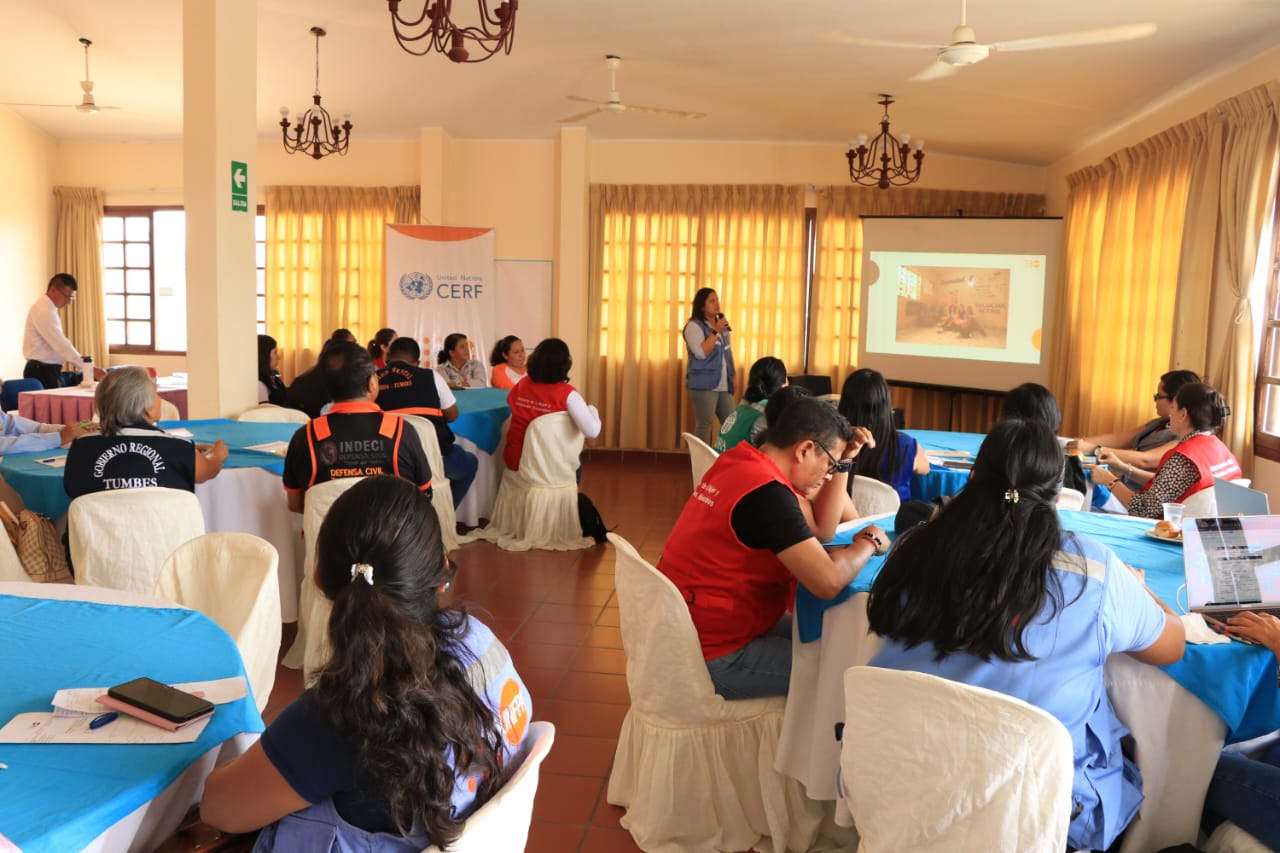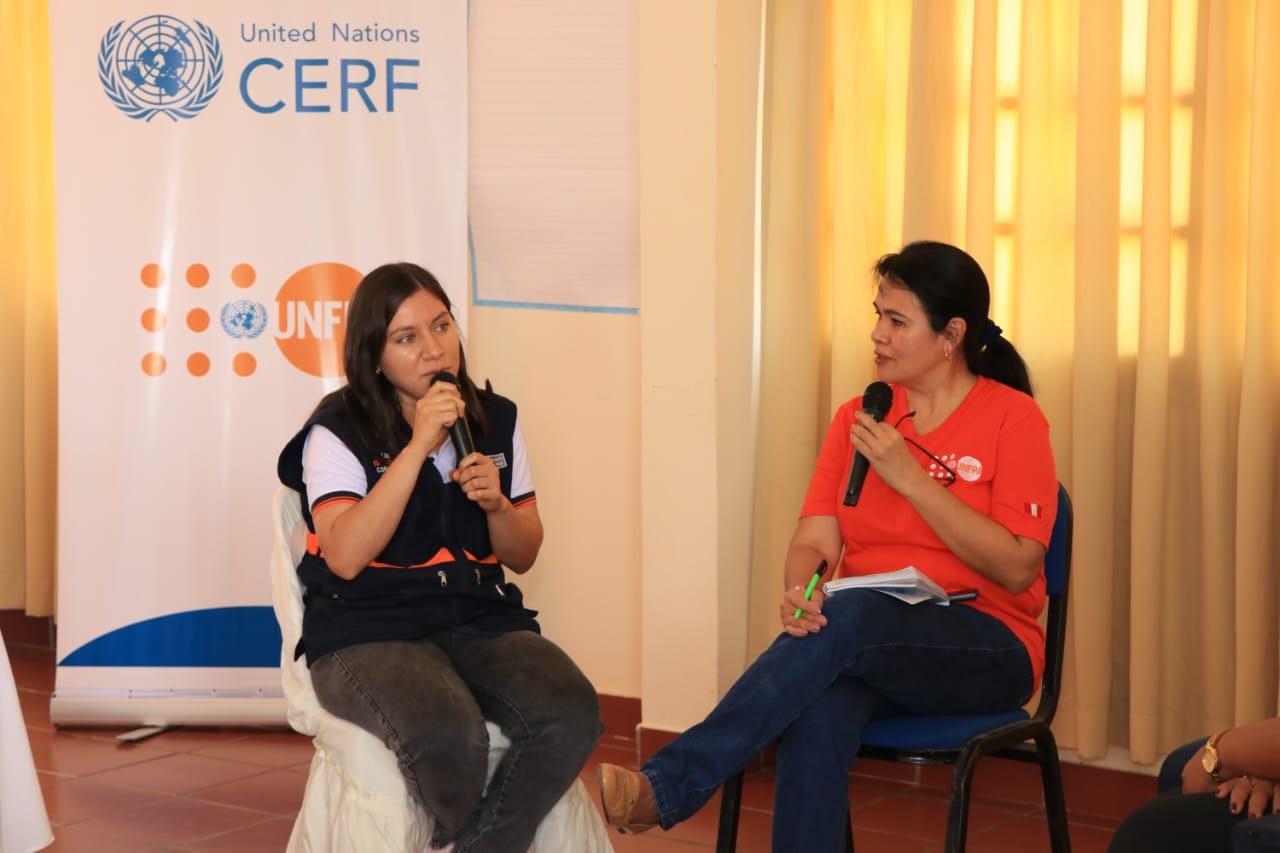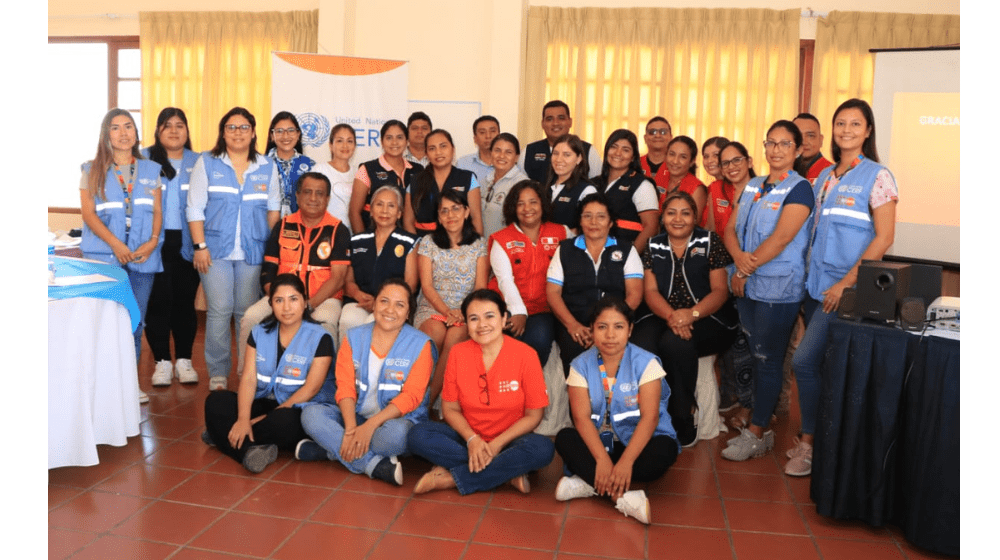TUMBES. - The emergency caused by the flooding following the Yaku cyclone and El Niño Costero in northern Peru (Tumbes, Piura, and Lambayeque) exacerbated the risks faced by women, adolescents, and the LGBTI population. Gender-based violence manifested in forms such as domestic violence, sexual exploitation, child marriage, and denial of resources, impacting not only the survivors' physical and psychosocial health but also their families and communities.
Given the urgent need to improve the accessibility and quality of services to address gender-based violence (GBV), it is crucial that service providers are trained in the global technical guidelines of the humanitarian system to respond to gender-based violence in emergency situations.

In this context, as part of the project funded by CERF to respond to the climate crisis in the northern part of the country, the United Nations Population Fund (UNFPA) in Peru is conducting training for local and regional government officials, healthcare personnel, protection services, and members of the Humanitarian Network in the three affected regions. These sessions focus on the Inter-Agency Minimum Standards for the Prevention and Response to GBV in Emergency Situations, with the aim of enhancing understanding of GBV programming in humanitarian contexts and providing tools to design and implement ethical and high-quality services.
Gender-Based Violence Workshop for actors in the Tumbes department
A couple of weeks ago, the first workshop of this nature took place in the Lambayeque region, with the participation of local and regional authorities from various partner institutions. This time, in Tumbes, more than 30 individuals, including regional and local government officials, public institutional representatives, civil society representatives, and UN agencies, participated in this second edition of the Inter-Agency Minimum Standards workshop on GBV. The workshop aimed to contribute to strengthening the competencies of healthcare, justice, and protection service operators in programming and implementing GBV response interventions in emergency contexts.
Among the participants were representatives from DIRESA Tumbes, the Women's Emergency Center (CEM) of the Ministry of Women and Vulnerable Populations, Ministry of Foreign Affairs, Public Ministry, ADRA NGO, UNHCR ACNUR, UN refugee agency, IOM, HAIAS NGO, representatives of the Provincial Coordination Instance to prevent sanctions and eradicate violence against women, and family group members.

The workshop was organized and delivered by the CERF - UNFPA team in Peru, in coordination with the GBV prevention and response team in humanitarian contexts from the UNFPA Regional Office for Latin America and the Caribbean, with the goal of strengthening the competencies of healthcare, justice, and protection service operators in programming GBV response interventions in emergency contexts.
UNFPA's training complements the efforts to enhance the comprehensive response to gender-based violence in crisis contexts, contributing to a safer and more just environment for the affected individuals and communities as a whole.
For more information about the CERF Project to Save Lives and Leave No One Behind: https://peru.unfpa.org/es/salvando-vidas-peru-cerf


